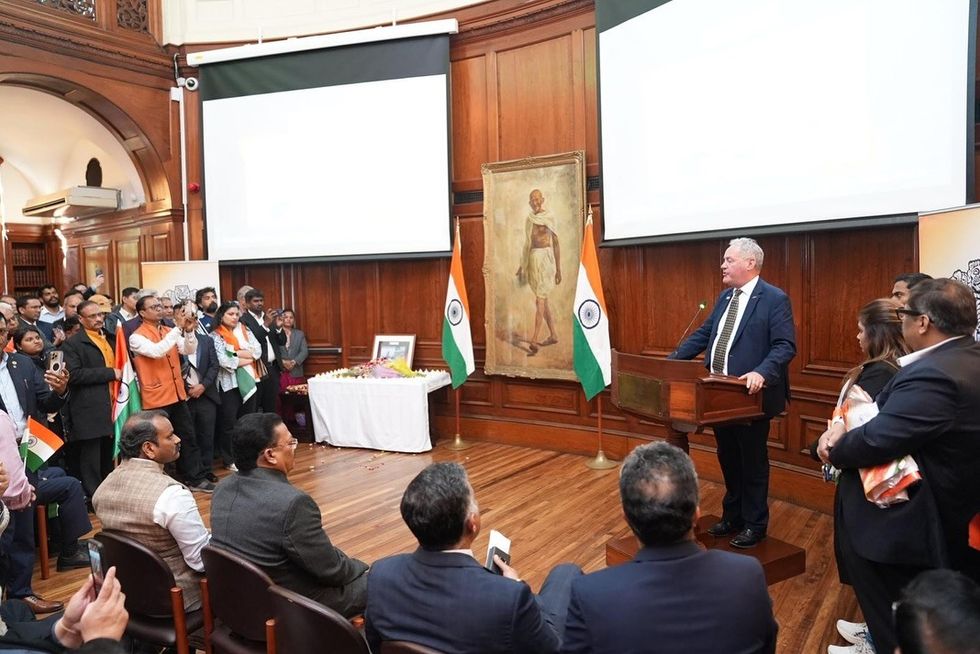by LAUREN CODLING
MEDIA experts have spoken in favour of diverse representation within advertising, following the racist backlash faced by Sainsbury’s after it unveiled its latest Christmas campaign.
The leading supermarket chain received criticism for its festive advertisement, which featured a black family celebrating the holidays. Following its release last month, there were hundreds of racist comments on social media and some shoppers also threatened to boycott the store.
One post on Twitter said: “Every single TV ad this evening is black ... I’m going to take a stand and not buy from these companies until they *see me*. I’m white and I live in a majority white country.”
The advert – one of three from Sainsbury’s featuring different families and their memories of Christmas – received support from others, who condemned the racist comments and voiced support for the retailer.
Sanjay Shabi is the head of CultureCom UK, part of MediaCom’s ethnic media, and ethnic targeting division. He has worked in the industry for more than three decades, and said diversity in advertising has “always been a priority”. “The question is whether advertisers have done anything to address that,” he told Eastern Eye.
Shabi said he has seen a rise in diverse representation in recent years. In particular, he believes the momentum of the Black Lives Matter (BLM) movement in May has increased the need for inclusivity across advertising. “I think (the BLM protests) marked a real turning point when people needed to really think about how they addressed diverse audiences,” he said.
Serhat Ekinci is the managing director of Unite, the diversity marketing division of Omnicom Media Group, a parent company of PHD Media, Sainsburys’ media agency. He said although diversity had always been an “important topic”, it was often forgotten.
In his experience, some brands tended to focus on ethnic communities only during occasions such as Diwali or Ramadan. “You should not put ethnic communities and media on the plan just because it is Ramadan – it should be part of everything you do,” Ekinci told Eastern Eye. He acknowledged that the attitudes of many clients had changed in recent years. In the past, he found some brands would be reluctant to engage with ethnic media.
“Now they understand that we should use diverse media outlets as part of (their campaigns), he explained. “Because it’s not just about reaching (ethnic audiences), it is also making sure that our share of spend goes to those media outlets which represent a community.”
Javed Husain is head of media at MediaReach. Husain, who has worked in the advertising industry for more than three decades, believes some of the hostility stemmed from the belief that Sainsbury’s is a “white-British” brand. “There is this notion in some people’s minds that British is white, so it then becomes an attitude of ‘it’s my Sainsbury’s’ and ‘how could they use a black family?’” he explained. “That’s really the crux of it.”
Ekinci admitted that he was not surprised by the hostile reaction to the Sainsbury’s advertisement. Although he believes the negative reaction came from a minority of the general population, he said people needed to “persistently challenge” racism and noted that prejudice differed between generations. “There is a certain generation who still don’t get what racism means or how ethnic minorities feel, whether it’s in the workplace or in terms of representation,” he said. “We are a minority in this country, but it doesn’t mean we don’t have rights or should be treated differently.”
Ekinci also noted the response to a BLM inspired performance by dance group Diversity on talent show Britain’s Got Talent earlier this year, which received almost 30,000 complaints. The dance referenced the killing of George Floyd, a black man who died while being arrested by a white police officer in the US, and whose death triggered the most recent BLM protests around the world.
Shabi said he was unsure if the Sainsbury’s campaign would have received the same level of attention if the discussion on the BLM movement had not been so prominent throughout the year. He argued an advertiser may have been criticised either way – whether or not an ethnic minority family has been featured in the film. “It’s almost like you’re damned if you do and damned if you don’t,” he said.
If an advertiser was making a sincere attempt to broaden their reach, it was unfair that they were castigated for it, Shabi said. “Sure, there can be a question mark on their method or their approach, but no one’s ever going to get it right all of the time,” he said. “But I think (Sainsbury’s) have clearly understood that there is a need to do it.”
He added: “There’s always people who are going to take conflicting positions to whatever you do.”
Husain said those complaining about the campaign needed to recognise that Britain was a multicultural country. “I think people are still living inside bubbles when they think (the UK is not diverse),” he said. “People need to realise that we have a diverse audience, and a diverse Britain. We need to understand and appreciate that.”
In response to Eastern Eye on Monday (7), a Sainsbury’s spokesperson said they were “proud” the advert represented “the diverse communities we serve”. “Sainsbury’s is for everyone, and it’s important that our advertising reflects this,” the spokesperson said. “The negative response of a vocal minority will not stop us from representing modern Britain. We will continue to celebrate diversity now and in the future.”



















 Bob Blackman MP speaks during the event
Bob Blackman MP speaks during the event